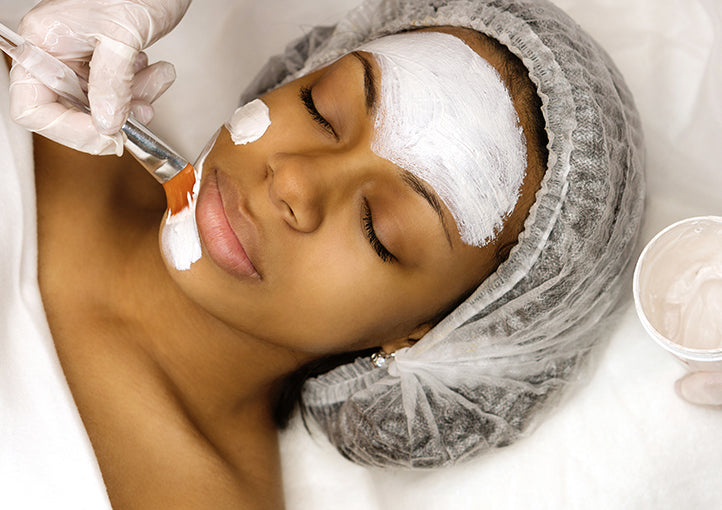
Chemical Peel Vs. Herbal Peel
Share
Before deciding whether you want a chemical peel or a natural herbal peel, you should know that both have their risks and benefits. Chemical peels may cause scarring, and they're not suitable for everyone. They also increase your skin's sensitivity to the sun, so it's important to wear sunscreen after a chemical peel. Otherwise, your results could be compromised. Let's take a look at both of the procedures and what one can expect from them!
What is Chemical Peel?
Chemical peels are typically used to improve the texture of facial skin. They can also be used to treat scarring. These peels work by removing the outer layers of skin. The chemical solutions used in the peeling process induce a controlled injury to the skin. The results can range from less scarring to a brighter complexion.
Some people may benefit from a chemical peel, but it's not right for everyone. People with fair skin and light hair help the procedure the most, while those with darker skin may not see any immediate benefits. If you're unsure whether chemical peels are right for you, consult a dermatologic surgeon. He or she can guide the best course of treatment for your skin type and goals. Once you've decided which treatment best suits you, your esthetician will determine how deep the peel should be.
Chemical peels come in many strengths and chemical compositions. Your doctor will use the appropriate peel for your skin type, problem, and desired results. Chemical peels can reduce lines and fine lines, stimulate collagen production, and improve tone and texture. They can also remove blackheads and excess oil from the skin. However, chemical peels are not recommended for people with hypersensitive skin.
What is Herbal Peel?
An herbal peel might be the solution if you wonder how to reduce fine lines and wrinkles. This treatment involves massaging your skin with a special blend of herbs. It may cause a flushing or tingling sensation but won't interfere with your daily life. It helps release natural active ingredients into your skin, including vitamins, minerals, enzymes, and trace elements.
Aside from its natural benefits, an herbal peel can help your skin regenerate. Herbal peels contain herbs that have antibacterial, anti-inflammatory, and regenerative properties. They can also reduce pigmentation, pore size, and fine lines. While they don't provide instant results, they can help you look younger and fresher.
Aherbal peel is a great option for acne-prone and age-related skin. It is a green mixture of herbs applied to the skin and massaged into it. This treatment is very effective, natural, and safe for improving skin.
Why would the herbal peel be better than the chemical peel?
Herbal peels are gentle and effective and don't cause side effects. They're made of pure herbs that don't contain toxins, acids, or synthetic ingredients. Herbal peels promote healthier skin by enhancing blood circulation, regulating moisture, and strengthening connective tissue. Herbal peels are a great option for all skin types, as they target all aspects of skin health.
Whereas on the other hand, Chemical peels have the potential to cause scarring. They can leave a depressed, bumpy appearance. Moreover, it can weaken the defensive barrier of your skin, making it more vulnerable to bacterial pathogens and free radical damage. Chemical peels can also cause a temporary change in your skin's color. The solution can also change the pigmentation of your skin, so you should go for an herbal peel rather than a chemical one!
Summing up:
Chemical peels are an exceptional option for those who want a fresh, younger-looking complexion. They also offer uniform coloration and texture. However, on the other hand, a herbal peel works to deeply cleanse the skin, minimize excess sebum secretions, and remove dead skin cells. Both types have pros and cons, and you must consider them before opting for one!